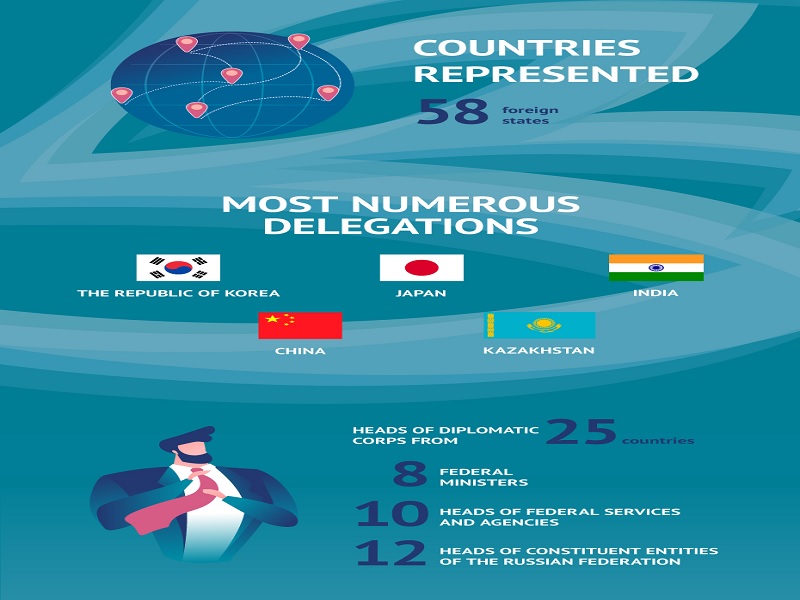
The seventh Eastern Economic Forum (EEF) will be held in Vladivostok from 5-8 September, but President Putin already sent his greetings to the participants through a message available on the front page of the event’s website.
It’s very concise, but it nevertheless encapsulates the essence of his recently restored world power’s Asia-Pacific strategy, which will be briefly reviewed in the present piece.
The Russian leader opened by talking about his Great Power’s interest “in attracting investment and technological innovations, as well as more fully unlocking the rich economic and social potential of the Russian Far East.”
That, after all, has always been the official purpose of this event. He then segued into touching on the context in which it’s being held this year, which is the global systemic transition to multipolarity that was accelerated by the latest US-provoked phase of the Ukrainian Conflict.
This directly led to the most crucial part of his message which reads as follows: “The obsolete unipolar model is being replaced by a new world order based on the fundamental principles of justice and equality, as well as the recognition of the right of each state and people to their own sovereign path of development.
Powerful political and economic centres are taking shape right here in the Asia-Pacific region, acting as a driving force in this irreversible process.”
This represents the implementation of exactly what Deputy Speaker of Russia’s Federation Council and Chairman of its Foreign Affairs Committee Konstantin Kosachev spoke about last week with respect to prioritizing the construction of geo-economically multipolar institutions.
His envisaged method is regarded as the most effective means to make tangible progress because it creates relationships of complex mutual interdependence between all participating parties, both companies and states.
That’s why President Putin then said that “It is important that commercial contracts and long-term agreements are expected to be signed during the Forum with the participation of business circles and the regional authorities.”
The EEF might have begun as a purely economic event seven years ago, but it’s since evolved into a strategic one due to the current context because it provides the platform for creating the abovementioned relations that in turn lead to the construction of multipolar institutions.
Skeptics might doubt the basis of this grand strategy but President Putin put their concerns to rest when ending his message by reaffirming that Russia’s “direct bilateral cooperation with Asia-Pacific nations as well as their cooperation within the framework of such influential associations as the Eurasian Economic Community, the SCO, BRICS, APEC, and ASEAN is growing stronger and gaining momentum.”
It’s precisely those countries’ representatives that comprise the vast majority of the EEF’s participants.
In a nutshell, the EEF has now become a yearly platform for further accelerating the global systemic transition to multipolarity, which all participants are eager to do with equal enthusiasm since they understand how mutually beneficial this is for their interests.
The Russian Far East is a resource-rich but largely untapped geostrategic region in the northern corner of the Asia-Pacific where all relevant global processes are converging.
It therefore naturally follows that Russia will take maximum advantage of this, including through the promotion of de-dollarization mechanisms such as the one that was just pioneered by India for conducting bilateral trade. Step by step, Russia is becoming an indispensable force in the Asia-Pacific to complement its already indispensable role in Eurasia, which altogether cements its recently restored status as a world power.
By Andrew Korybko
Published by OneWorldPress
Republished by The 21st Century
The views expressed in this article are solely those of the author and do not necessarily reflect the opinions of 21cir.com
